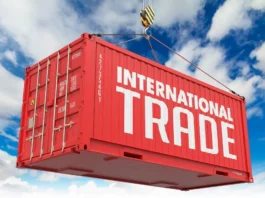
Business in music making, Do you need to “know somebody” or “get lucky” to build a fan base and grow an artist’s income in the music business?
Absolutely not!
As long as you’re making good music in a genre that has an audience, there’s a straightforward way to predictably and reliably grow your fan base, make money… while you get to focus on the music.
By the end of this article, you’ll know the surefire technique that will help you make money with your music.
Music as a business, business in music making
Making money in the music industry isn’t always as simple as negotiating a salary and waiting for your paycheck to come in. For this reason, the music career you choose will have a big impact on how you make money in the music business.
To make something clear from the start—music is not a business. Music is an art form. A business has formed around music, but music can (and does) happen whether or not anyone ever makes money at it. However, if you are a musician in our culture and desire to make music as a full-time career, you need to learn the business in music—to see yourself and your music through a particular lens to succeed in the business community that surrounds the music.
As intimidating as the business world might be to some artists, in effect, all business revolves around three elementary concepts:
- Identifying a need or desire among people;
- Developing a product that meets that need or desire; and
- Marketing the product to the people who need or desire it.
To see music as a business, one needs to re-think the elements of his/her art in the light of these concepts—to translate musical elements into business terms.
How to start up your own Business in Music
If you want to start up your own business in music, here are few common-sense tips to help you start.
Decide on a Particular Niche
There are many different types of business in music, and it’s important to decide what you want to focus on. If you’re taking the music production or audio engineering course here at the recording connection, the chances are good that you’ve already decided to be in business for yourself as a music producer or audio engineer, perhaps as an independent freelancer or building your own studio. If you’re a brand or solo recording artist, you should also set up a business entity for tax purposes. Other music business possibilities include record labels, music publishing/licensing, live music venues, rehearsal studios, post–production houses, etc. You can be self-employed as a film composer, post-production engineer, sound designer, music producer- the goes on and on. Don’t try to be everything, everyone. Decide on a niche.
Get your Paperwork and Finances in Order
This part of the music business is critical; you need to take serious steps to ensure your business doesn’t fail or don’t get into trouble. Register a company name with your country or state. Talk with an accountant about the best way to structure your business tax-wise. Write a business plan strategy.
Market and Network
These days, a website and social networking form a huge part of spreading the word about your new business.
First, we need to locate fans of your genre.
This is where social media can actually be a huge help.
Some genres have large and thriving online communities that you can become part of.
Other genres don’t, and you’ll have to look a little harder to find where fans hang out.
For some genres, the only reliable way to reach fans online is through paid advertising. Don’t worry, though — it’s not as hard as it seems, and there’s a very straightforward process you can use to dial things in. Once you know what to look for, it’s still relatively easy to turn a profit.
Once we’ve found where fans are hanging out, we need to attract signups to your list.
Yep. It’s all about growing YOUR LIST.
Aside from your songs, your email list is the most valuable asset you have.
Don’t send people to Facebook, Twitter, Instagram, Snapchat, Youtube, or anyplace else.
Could you send them to a landing page?
Where you’ll give them a sample of your music…
And make them an exclusive offer for some of your best work…
FREE…
In exchange for their email address
And what should you offer?
Your best work. The songs and/or videos you’re proudest of. Most importantly
Besides, get to know people. Go to industry events, not just to meet your competitors, but to meet potential clients. You already know by now that EVERYTHING in the music industry hinges on connections. So make them. Lots of them
How the Music Industry Works in 10 Key Parts
The music industry works through a network of partnerships between companies and individuals on the music creation side (singers, songwriters, and producers), the customer-facing side (streaming platforms, venues, and public performance platforms like radio), and the business side, connecting the two (labels, managers, publicists, Performance Rights Organizations, distributors, booking agents and more).
We often hear the unified term “music industry” thrown around. It can be very deceiving: what may appear to be a single cohesive industry is actually a web of individual parts — sometimes overlapping, other times not. That’s why we’ve decided to give it some structure and dedicate a chapter to each distinct building block we’ve identified. This breakdown is subjective and non-exhaustive, so there are definitely more topics that we could cover.
Without further ado, here are the chapters we’ve focused on:
1. Recording Industry
Record labels suffered the most from piracy in the 2000s. In 15 years, the recording industry went through 3 different realities – from CD to digital piracy to streaming. Labels had to adapt, and the recording business models have changed accordingly. Even today, the recording industry is still facing new challenges – from DIY artists bypassing the labels entirely by working directly with artist aggregators like Soundcloud to increase the artist’s manager’s involvement in the release promotion.
While the recording industry’s place in the grand scheme of things is changing, labels remain the first thing that comes to mind when people think of the music industry. Most hip-hop fans have heard about Def Jam, EDM fans – of OWSLA and country fans – of Big Machine. Even Universal, Sony, and Warner are considered “record labels” by the general population, even though their business model spreads far beyond the scope of a “recording company,” covering all sides of the music business.
2. Digital Music Distribution Industry
Technically, distribution is a part of the recording chain. The distributors’ core role is simple: deliver the release to the stores and keep the cash flowing back to the artists and/or their labels. Sounds pretty straightforward, right?
Well, not really. As streaming took over the music industry, the DSPs have become an all-in-one stop for music consumption, monetization, and discovery. The likes of Spotify are not only the platforms for artists to monetize their music but prominent promotion channels. In fact, for 90% of the artists out there, the promotional effect of streaming playlists and discovery algorithms is probably more important than the money they get from streaming services.
Accordingly, the distributor’s industry has become increasingly important as the liaisons between the DSPs and the recording industry, expanding their business model far beyond the core administration and aggregation services.

3. Streaming
Adopting streaming is by far the most significant shift in the industry in the last ten years — and that’s a shift that is still ongoing. Even today, streaming services are looking for ways to expand their user-base, develop their product, grow revenues, and find a sustainable long-term business model. The music industry is caught in the middle of that process.
Streaming has already changed the way the recording industry operates and how we consume, share and experience music — and that might be just the beginning.
4. Live and Touring Industry
Virtual Reality (VR) is slowly but surely entering life. With startups like ThewaveVR and NextVR making a case for the new type of live experience, we might see the industry soon taking a turn for digitalization. However, it remains 99% “physical,” which also means that it’s the least scalable part of the music business.
There is no difference (from the resource standpoint, at least) between distributing a digital recording to a hundred or a million fans. Simultaneously, the amount of work that goes into organizing an international tour, reaching the same million fans, is enormous, as the industry remains localized and network-based.
5. Licensing and Sync
Music has always played an integral role in creative industries like film and video games. At the same time, sponsorships deals with musicians are standard practice for brands across all consumer goods sectors, from the Luxury to FMCG. The licensing business manages all those connections with external players. Relationships with brands and other mediums are more than just a revenue stream. A fortunate integration can become a major promotional opportunity for the artist – each of us can probably think of a couple of artists that we’ve discovered in the cinema theater.
6. Artist Management
Managers have unique relationships with artists as they are the only partners who are always aligned with the artists financially. Instead of focusing on a single subset of the industry, managers work on long-term global strategies and help the artists make critical business decisions. Besides, managers coordinate all of the professionals working on the artist’s career — so they need a broad and in-depth knowledge of the entire industry.
Such all-around expertise also means that managers are the best at filling the gaps. Depending on an artist’s needs, managers can replace publishers, dive deep into the record promotion or negotiate live performances. To put it simply, the manager is a jack of all trades and the backbone of any artist’s career.
7. Music Publishing Industry
“How do musicians make money?” The answer is not as straightforward as an outsider might think — and publishing is probably the most misunderstood and complex revenue source in the business. A music publisher’s goal is collecting royalty payments on the artist’s rights connected to the actual musical work and not the recording of it — this is the recording industry’s domain.
The bottom line is publishing is often obscure even for the experienced music professionals if they’ve never directly worked with the vertical.
8. Radio
The future place of Radio in the music industry is not that clear. The rise of streaming services also made it far more challenging for radios to reach their audiences – due to the complexity of copyright laws and legal barriers around FM/AM frequencies, even large corporations like iHeart and SiriusXM can’t offer the worldwide reach of the streaming giants.
However, this local focus is a two-sided coin: while radio can’t compete with streaming globally, it has kept its power as a localized communication channel. Keeping up with the spirit of the time, traditional radio invested heavily into the digital environment. That has opened up new ways for radio to interact with its audience – and while the radio has lost its status as the primary music discovery medium, it is still a prominent promotional channel and an integral part of the music business.
9. Legal
Every side of the music business has its own set of commonly accepted rules and regulations, facilitating the relationships between the partners where the law is not explicit. Besides that, local laws, differing from country to country, override those practices if they conflict. At the same time, lawmakers try to develop new solutions to the digital environment’s problems and shed light on the grey corners of the business.
As a result, we end up with one of the most globally connected industries, governed by a disconnected system of contracts and legislation. Whether you like it or not, a basic understanding of music law is essential for most music professionals.
10. Audience & Fan Attention
Relationships between the artist and his fan community are a vital resource for an artist’s career development. Fans were always generating awareness and promoting the artists within their social circles. However, as relationships moved from fan-clubs to social networks over the decades, artist-fans interactions became more crucial than ever. Technology has changed the way artists build relationships with the fans and the way fans communicate with each other and the general public. In the Web world, fans are the media in itself, which is sometimes far more effective than traditional channels.
One Last Thing
Get started!
Learning is awesome…
But just like with our music, it’s all about doing.
Breaking into the music business is harder than in other industries. Competition is high, but if you hone your craft, network with the right people, and put in the hard work, the sky will be your starting point in the music business.
That said, business is still the way our culture meets people’s needs—and music is still a need. If you want to make a living in music, you still need to treat music as a business; but remembering that music is art first, your product will keep its value in the long run.















